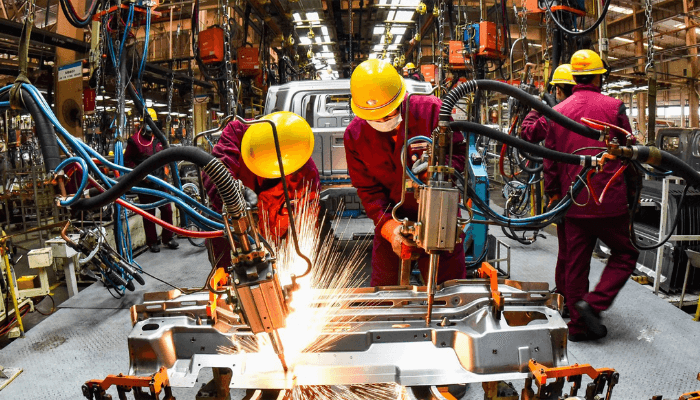
Nigeria is facing a sharp decline in foreign direct investment (FDI) in its manufacturing sector despite a notable increase in total capital imports in the first quarter of 2025.
Data from the National Bureau of Statistics (NBS), reported by Vanguard, shows that manufacturing FDI fell by 32.3% to $129.92 million in Q1 2025, down from $191.92 million in the same period a year earlier. This represents just 2.3% of total capital imports, which surged 67.12% to $5.64 billion from $3.38 billion in Q1 2024.
The downward trend in manufacturing FDI is confirmed on a year-on-year basis, with the sector attracting $256.12 million in Q1 2023. Quarter-on-quarter comparisons reveal an even steeper drop, as Q4 2024 recorded $421.04 million, highlighting a nearly 69% decline in three months.
Analysts attribute the underperformance of the real sector to persistent structural challenges, including energy shortages, soaring energy costs, foreign exchange scarcity, and political uncertainty. Investors are reportedly increasingly favouring quick-return financial instruments over long-term industrial commitments, further widening the gap between actual investment and Nigeria’s industrialisation ambitions.
The NBS report highlights that portfolio investments dominated capital inflows, reaching $5.20 billion or 92.25% of the total, followed by other investments at $311.17 million (5.52%). FDI remains the smallest component, with only $126.29 million or 2.24%.
Reacting to the figures, Dr. Muda Yusuf, Director General of the Center for the Promotion of Private Enterprise (CPPE), said the manufacturing sector has been “one of the hardest hit by economic reforms,” citing volatility in the foreign exchange market and rising energy prices as key shocks affecting businesses, particularly multinationals.
The decline underscores the urgent need for policy measures to stabilise energy supply, enhance access to foreign exchange, and rebuild investor confidence if Nigeria is to meet its industrial growth targets.



